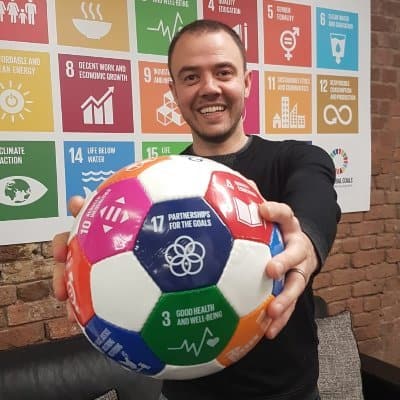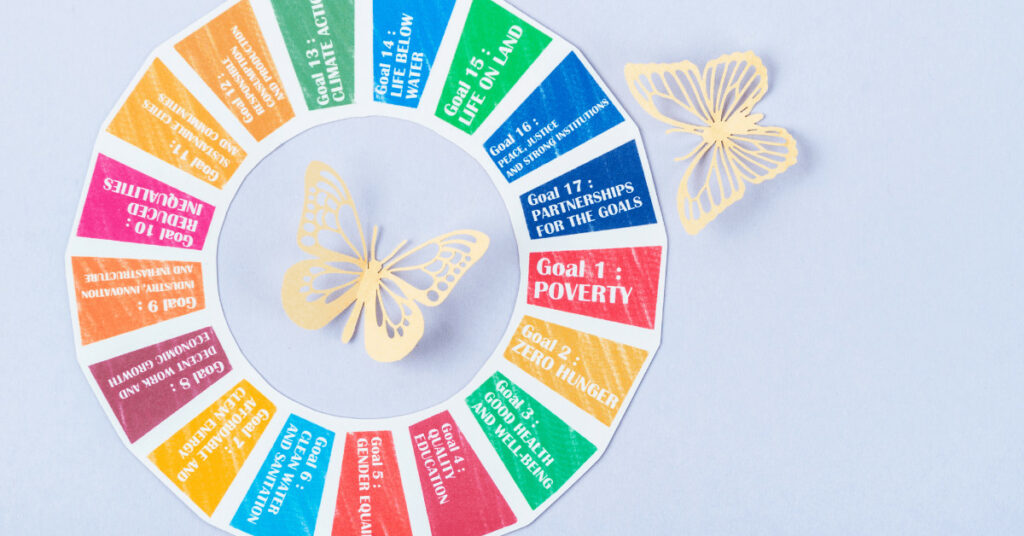What are the SDG Impact Standards? Why should organisations and investors adopt them and what does that entail? Ben Carpenter, the CEO of Social Value International (SVI), which has partnered with the United Nations Development Programme (UNDP) in developing the SDG Impact Standards, answers all your questions about the framework.
What are the SDG Impact Standards? What do they aim to achieve?
The SDG Impact Standards are a universal framework designed to support organisations aiming to optimise their contribution to the SDGs. They build on and connect existing impact management frameworks and tools, and fill gaps that are slowing down progress towards operating sustainably.
There are four standards – for enterprises, private equity, bonds, and financing sustainable development – which provide best practices for impact management. They include detailed step-by-step guidance to help organisations integrate impact management into their strategy, management approach, disclosure, governance, and decision-making practices. To help this integration, there is a self-assessment tool organisations can use to understand to what extent they meet various criteria for the standards and develop an action plan to adopt them.
The objective is to help shift organisations from SDG alignment to SDG action – from thinking about the SDGs as a mere “add-on”, to being central to how all business activities and decisions are conducted.
What is Social Value International’s contribution to the SDG Impact Standards?
SVI has partnered with UNDP in developing the SDG Impact Standards. The framework is fully aligned with SVI’s Principles of Social Value, which aim to optimise the wellbeing of people and the planet. The Principles of Social Value need to be followed to meet practice indicators for the SDG Impact Standards. This will ensure management for impact is embedded in all systems and processes in organisations.
We’re also promoting the roll-out and adoption of the standards to businesses, investors, and policymakers around the world. To support that process, we’re helping to build capacity to support organisations to align to the standards.
What does that involve exactly?
We partner with UNDP to deliver a Train-the-Trainer course to individuals who wish to become Accredited Trainers for the SDG Impact Standards. After they complete the training and pass an assessment, the trainers receive a licence to deliver training to organisations on how to implement the SDG Impact Standards. The course is delivered regularly online and in-person and has been offered in English, French, and Spanish.
And it’s been inspiring to receive feedback from the Accredited Trainers about their work with companies and investors. Bonnie Chiu, the Managing Director of the Social Investment Consultancy, is also an Accredited Trainer for the SDG Impact Standards. She recently delivered training in partnership with AVPN Academy. Bonnie notes that “Becoming an accredited SDG Impact Standards trainer has been a great professional milestone, given the level of depth and rigour involved. It has also enabled me to work with companies and impact funds from across the world, to maximise their positive social and environmental impact. I would highly recommend this to anyone!”
SVI is also supporting the development of an assurance framework for the SDG Impact Standards which should be rolled out in 2024.
Why should organisations adopt the SDG Impact Standards?
Besides enabling organisations to contribute to sustainable development, embedding the SDG Impact Standards strengthens their impact performance. It can assist organisations to employ the SDGs to allocate capital more effectively and explore different business models and new ways of working that strengthen business performance and drive forward better outcomes for people and the planet.
Organisations that align to the standards are better positioned to meet the growing and various reporting and disclosure requirements and the expectations of governments, regulators, investors, and other stakeholders.
There are strong commercial reasons for adopting the standards. Doing so can help attract impact investment. It can protect company reputation during rising boycotts and consumer activism. In addition, it can provide opportunities for sustained sales, and attracting and retaining talent. Moreover, it can lead to innovation and new market opportunities by serving under-served markets and delivering goods and services that meet higher sustainability standards.
What are the challenges of adopting the SDG Impact Standards?
The main challenge is to change the culture within an organisation so that impact data is used to inform all decisions. Another challenge is to help organisations understand that impact data will never be perfect and that is ok. What is needed is data that is good enough to enable a decision.
Organisations need to recognise that like all decisions, there are tradeoffs. If an organisation opens a new plant creating employment locally, we can say it creates a positive social impact, but it may also have a negative impact on the environment. The challenge in this case is to manage these impacts, ensuring the organisation is creating enough good for people without doing harm to the planet. This is the mindset organisations adopt with the standards and this is the only way they will be able to operate sustainably in the long term while contributing positively to sustainable development.
What is the interest level in adopting the standards?
The standards are relatively new, but uptake has been very encouraging. We were thrilled by the findings in the latest (2023) GIIN Global Impact Measurement and Management survey, showing that already 19% of the 308 respondent organisations are now using the SDG Impact Standards to guide their impact strategy.
What long term changes will result from embedding the SDG Impact Standards?
Our expectation is that organisations that align to the standards will change the process by which they make decisions.
This could entail developing a strategy for achieving sustainable development and having the right governance in place. It could also involve adopting a management approach that collects the right information about negative and positive impacts.
This isn’t just about reporting, but equipping organisations with systems, processes, and information to improve products and services and optimise the value they create for people and the planet.


















